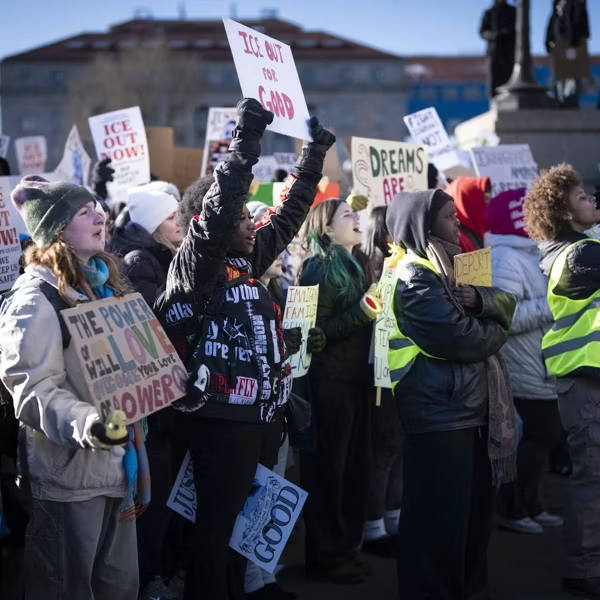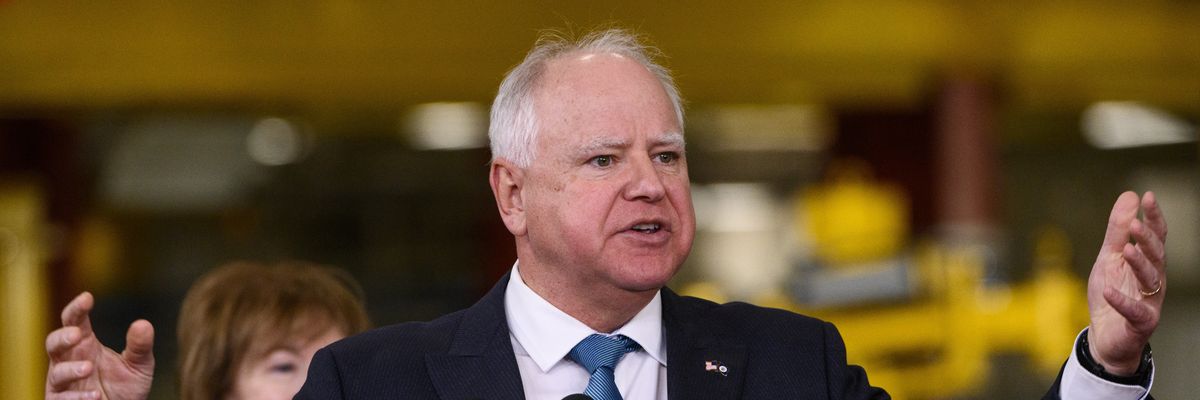Minnesota Gov. Tim Walz on Wednesday offered an unwavering defense of his state's recently enacted universal free school meals program, arguing that Republican efforts to means-test the initiative would have created burdensome and needless administrative barriers.
"The haves and the have-nots in the school lunchroom is not a necessary thing. Just feed our children," Walz, a member of the Democratic-Farmer-Labor Party, said during a press conference.
Minnesota's free school meals
program, which took effect on July 1, provides breakfast and lunch for free to K-12 students whose schools participate in the National School Lunch Program and the School Breakfast Program.
The meals are provided regardless of a student's family income. One anti-hunger campaigner
described the program as "a lunchbox tax cut—it gives money back to families."
Local advocates
estimate that roughly 17% of Minnesota children are food-insecure, and many did not previously qualify for means-tested school meal assistance.
Republicanslargely opposed the creation of the free lunch and breakfast program, which grew out of a federally funded school meals initiative launched during the coronavirus pandemic.
Some Minnesota Republicans pushed for income-based restrictions on eligibility for free school meals,
claiming that it "doesn't make sense" to provide no-cost meals to students whose families can afford to pay.
But Walz rejected that argument during Wednesday's press conference.
"Isn't that rich. Our Republican colleagues were concerned there would be a tax cut for the wealthiest," said Walz. "The fact of the matter is that the programs of getting food to our children as easily as possible has always been a priority."
"We know there's a lot of families—it's hard, they send you tons of paperwork, you're struggling, you're doing work, you're doing all that," Walz added, referring to the income verification process and other hoops families previously had to jump through to qualify their children for free school meals. "This was meant to make it as easy as possible knowing that it's a benefit for all of them."
Minnesota is one of
several states that have moved to enact their own free school meal programs following the lapse of emergency federal funding.
Late last month, Massachusetts lawmakers approved a budget that requires public schools to provide all K-12 students with free meals—a program funded by revenue from the state's
tax on millionaires.
"Free universal school meals are now the law of the land in Massachusetts," U.S. Rep. Ayanna Pressley (D-Mass.)
wrote Wednesday. "Congress must follow suit and pass the Universal School Meals Program Act to make this a reality for every child in America."




